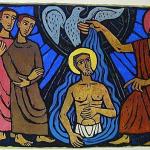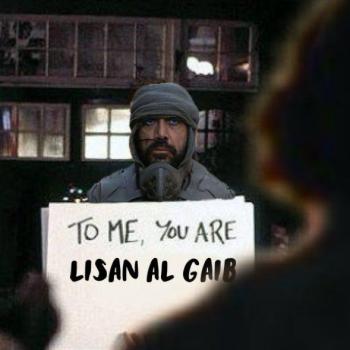I recently resumed my “reading” of Frank Herbert’s Dune series through audiobooks, after a longer hiatus than I care to admit. Over the course of Heretics of Dune, I kept finding quotations that are worth sharing. Two were conveniently already to be found online as memes, and so I will embed them below – and then share a few more thoughts about them below that, as well as other quotes.
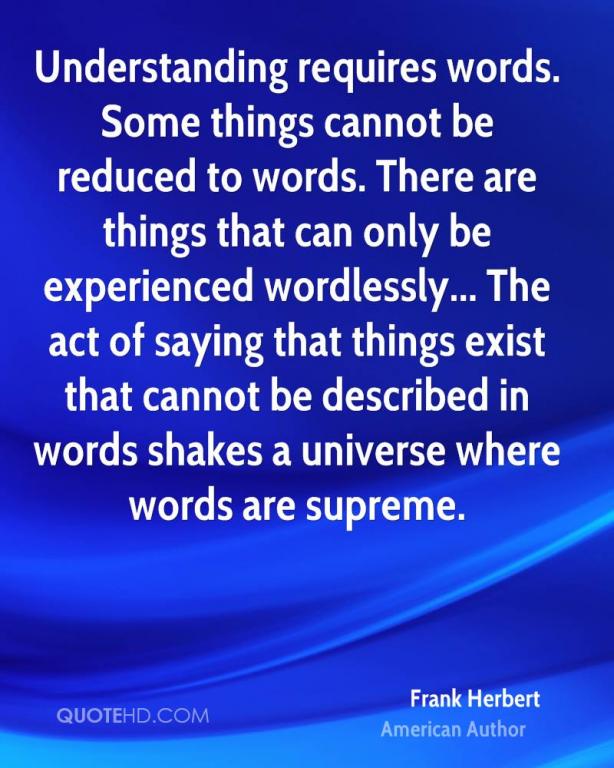
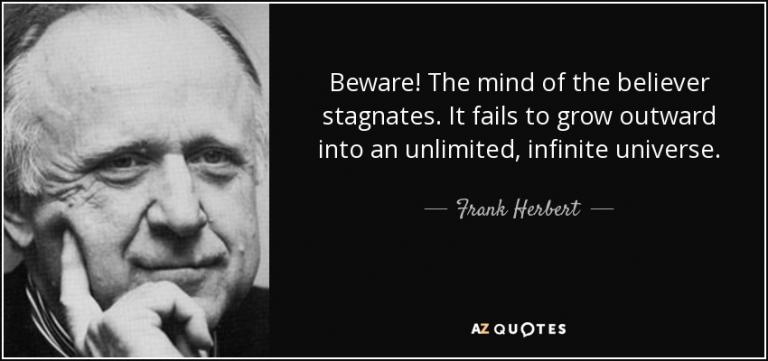
One thing that I found particularly interesting is how the sentiment in the quote, which is found on the lips or produced by the pen of a fictional character in a novel, is attributed to the author. This might seem insignificant, but I have often encountered students who assumed that the perspective of Ivan in The Brothers Karamazov was the viewpoint of Fyodor Dostoyevsky – leading them to feel bewildered when they learned that he was a devout Orthodox Christian. And so I thought I’d share some of the inspiring and important quotes that have jumped out at me while listening to science fiction lately, but also ask how you think they ought to best be quoted. Should they be attributed to the character, the author, or both simultaneously?
Another book I was long overdue to read and enjoyed as an audiobook recently is Orson Scott Card’s Speaker for the Dead. That’s another one where a character says something that is worth quoting – in this case, it is an interpretation of the story of the woman caught in adultery:
A Great Rabbi stands, teaching in the marketplace. It happens that a husband finds proof that morning of his wife’s adultery, and a mob carries her to the marketplace to stone her to death.
There is a familiar version of this story, but a friend of mine – a Speaker for the Dead – has told me of two other Rabbis that faced the same situation. Those are the ones I’m going to tell you.
The Rabbi walks forward and stands beside the woman. Out of respect for him the mob forbears and waits with the stones heavy in their hands. ‘Is there any man here,’ he says to them, ‘who has not desired another man’s wife, another woman’s husband?’
They murmur and say, ‘We all know the desire, but Rabbi none of us has acted on it.’The Rabbi says, ‘Then kneel down and give thanks that God has made you strong.’ He takes the woman by the hand and leads her out of the market. Just before he lets her go, he whispers to her, ‘Tell the Lord Magistrate who saved his mistress, then he’ll know I am his loyal servant.’
So the woman lives because the community is too corrupt to protect itself from disorder.
Another Rabbi. Another city. He goes to her and stops the mob as in the other story and says, ‘Which of you is without sin? Let him cast the first stone.’
The people are abashed, and they forget their unity of purpose in the memory of their own individual sins. ‘Someday,’ they think, ‘I may be like this woman. And I’ll hope for forgiveness and another chance. I should treat her as I wish to be treated.’
As they opened their hands and let their stones fall to the ground, the Rabbi picks up one of the fallen stones, lifts it high over the woman’s head and throws it straight down with all his might it crushes her skull and dashes her brain among the cobblestones. ‘Nor am I without sins,’ he says to the people, ‘but if we allow only perfect people to enforce the law, the law will soon be dead – and our city with it.’
So the woman died because her community was too rigid to endure her deviance.
The famous version of this story is noteworthy because it is so startlingly rare in our experience. Most communities lurch between decay and rigor mortis and when they veer too far they die. Only one Rabbi dared to expect of us such a perfect balance that we could preserve the law and still forgive the deviation.
So of course, we killed him.
-San Angelo
Letters to an Incipient Heretic
A number of quotations from science fiction characters – whether attributed to them or the the authors – seem especially relevant to our current political climate:
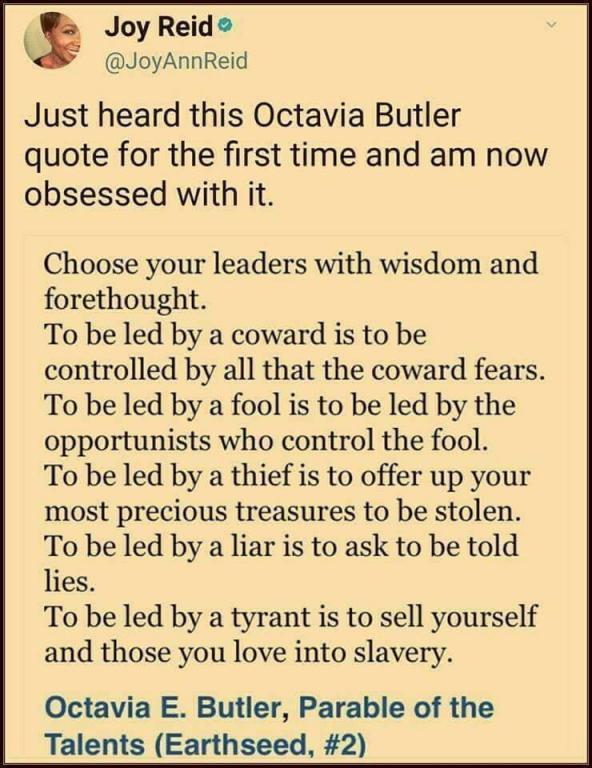
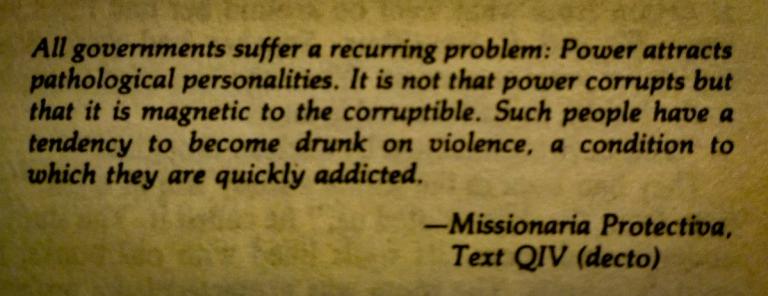
The second one is from Chapterhouse: Dune by Frank Herbert.
What quotes from science fiction have you found inspiring and/or relevant to the real world you live in?
See also the BBC article about what the science fiction that we enjoy says about us.
I suspect that most who share my interest in religion and science fiction will have already seen the article in USA Today about Muslim young people’s consumption of science fiction, but if not, I recommend it!
Also of related interest, here is a podcast by my former colleague Chris Hess:


